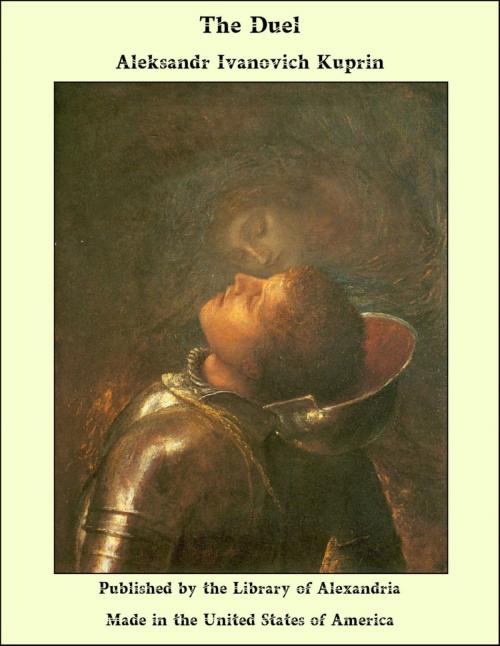| Author: | Aleksandr Ivanovich Kuprin | ISBN: | 9781465593764 |
| Publisher: | Library of Alexandria | Publication: | March 8, 2015 |
| Imprint: | Language: | English |
| Author: | Aleksandr Ivanovich Kuprin |
| ISBN: | 9781465593764 |
| Publisher: | Library of Alexandria |
| Publication: | March 8, 2015 |
| Imprint: | |
| Language: | English |
THE 6th Company’s afternoon drill was nearly over, and the junior officers looked with increasing frequency at their watches, and with growing impatience. The rank and file of the new regiment were being instructed in garrison duty. Along the whole of the extensive parade-ground the soldiers stood in scattered groups: by the poplars that bordered the causeway, by the gymnastic apparatus, by the door of the company’s school, and in the neighbourhood of the butts. All these places were to represent during the drill the most important buildings in the garrison—the commander’s residence, the headquarters, the powder magazine, the administration department, etc. Sentries were posted and relieved; patrols marched here and there, shouting at and saluting each other in military fashion; harsh non-commissioned officers visited and examined the sentries on duty, trying, sometimes by a trick, sometimes by pretended threats, to fool the soldiers into infringing the rules, e.g. to quit their posts, give up their rifles, to take charge of contraband articles, etc. The older men, who had had previous experience of such practical jokes, were very seldom taken in, but answered rudely, “The Tsar alone gives orders here,” etc., etc. The young recruits, on the other hand, often enough fell into the snare set for them. “Khliabnikov!” a stout little “non-com.” cried angrily in a voice which betrayed a passion for ruling. “What did I tell you just now, simpleton? Did I put you under arrest? What are you sticking there for, then? Why don’t you answer?” In the third platoon a tragi-comic scene took place. Moukhamedjinov, a young soldier, Tartar by birth, was not yet versed in the Russian language. He got more and more confused under the commander’s irritating and insidious questions. At last he lost his head entirely, brought his rifle to the charge, and threatened all the bystanders with the bayonet.
THE 6th Company’s afternoon drill was nearly over, and the junior officers looked with increasing frequency at their watches, and with growing impatience. The rank and file of the new regiment were being instructed in garrison duty. Along the whole of the extensive parade-ground the soldiers stood in scattered groups: by the poplars that bordered the causeway, by the gymnastic apparatus, by the door of the company’s school, and in the neighbourhood of the butts. All these places were to represent during the drill the most important buildings in the garrison—the commander’s residence, the headquarters, the powder magazine, the administration department, etc. Sentries were posted and relieved; patrols marched here and there, shouting at and saluting each other in military fashion; harsh non-commissioned officers visited and examined the sentries on duty, trying, sometimes by a trick, sometimes by pretended threats, to fool the soldiers into infringing the rules, e.g. to quit their posts, give up their rifles, to take charge of contraband articles, etc. The older men, who had had previous experience of such practical jokes, were very seldom taken in, but answered rudely, “The Tsar alone gives orders here,” etc., etc. The young recruits, on the other hand, often enough fell into the snare set for them. “Khliabnikov!” a stout little “non-com.” cried angrily in a voice which betrayed a passion for ruling. “What did I tell you just now, simpleton? Did I put you under arrest? What are you sticking there for, then? Why don’t you answer?” In the third platoon a tragi-comic scene took place. Moukhamedjinov, a young soldier, Tartar by birth, was not yet versed in the Russian language. He got more and more confused under the commander’s irritating and insidious questions. At last he lost his head entirely, brought his rifle to the charge, and threatened all the bystanders with the bayonet.















